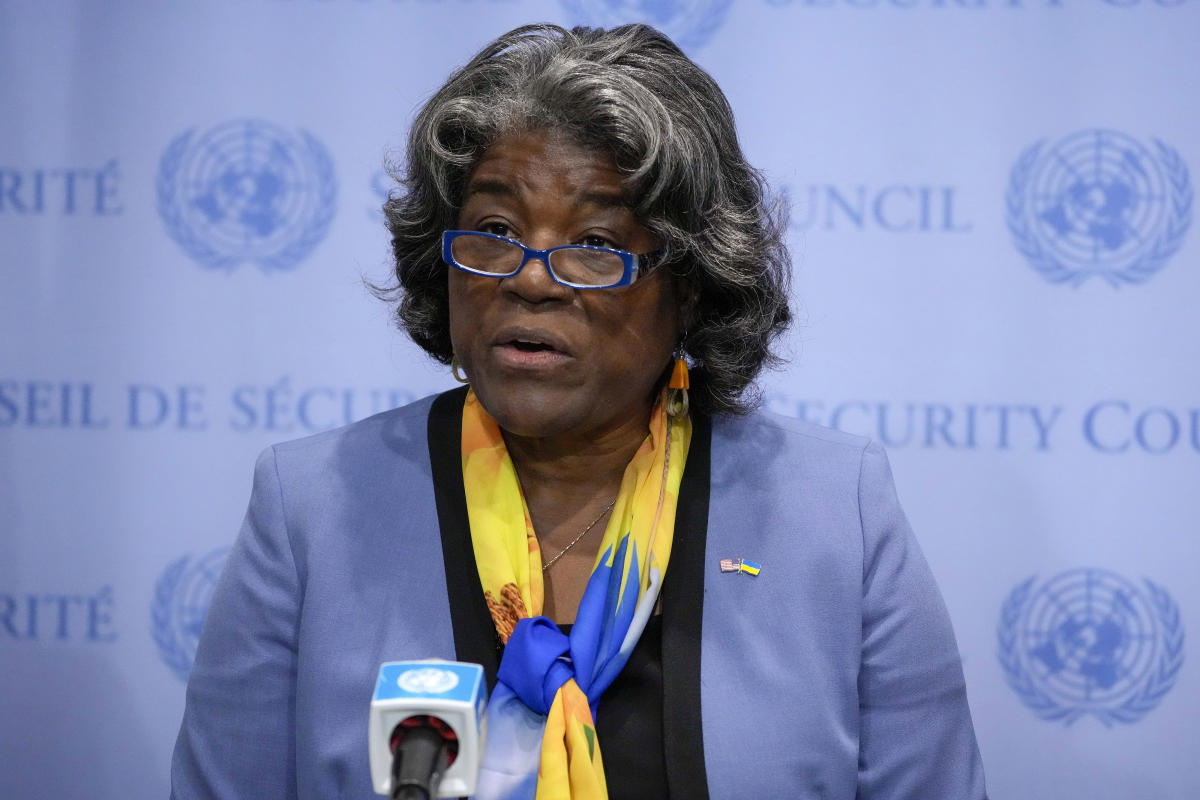UNITED NATIONS (AP) — The United States announced Thursday that it will support adding two new permanent seats for African countries to the powerful U.N. Security Council, and a first-ever non-permanent seat for a small developing island nation.
U.S. Ambassador to the UN Linda Thomas-Greenfield made the announcement in a speech to the Council on Foreign Relations, calling it a follow-up to U.S. President Joe Biden’s announcement two years ago that the U.S. supports expanding the body to 15 members.
Although Africa has three non-permanent seats on the Security Council, this does not allow African countries to “fully express their knowledge and voice,” she said.
“That’s why, in addition to non-permanent membership for African countries, the United States supports the creation of two permanent seats for Africa on the council,” Thomas-Greenfield said. “It’s what our African partners are seeking, and it’s what we believe is fair.”
However, a senior US administration official, speaking on condition of anonymity to brief reporters ahead of the announcement, said Washington does not believe new permanent members should have veto power because “expanding the veto would only lead to greater gridlock in the council.”
That position shows the limits to the amount of power Washington is willing to give to another country. Although Security Council resolutions are legally binding, they are often ignored by targeted countries.
Nearly eight decades after the United Nations was founded in the aftermath of World War II, virtually all countries agree that the Security Council should be expanded to reflect the 21st-century world and include more voices. But the central question — and the biggest disagreement — remains how to do that.
The Security Council, which is responsible for maintaining international peace and security, has not changed since its creation in 1945: 10 non-permanent members from all parts of the world, elected for two-year terms without veto power, and five countries that were dominant powers at the end of World War II are now permanent members with veto power: the United States, Russia, China, Britain and France.
For example, Russia’s veto has prevented any action by the council on the war in Ukraine. Moreover, US support for its ally Israel has limited the council’s response to the war in Gaza.
Efforts to reform the council to reflect the changing world began in 1979.
In 2005, world leaders called for the council to be “more broadly representative, efficient and transparent.” That year, the General Assembly, which must approve all reforms to the council, shelved three competing resolutions to expand its membership, reflecting deep divisions that persist to this day.
In September 2022, Biden called for increasing the number of permanent and non-permanent members, including “permanent seats for the countries we have long supported, and permanent seats for countries in Africa, Latin America and the Caribbean.” The United States has long supported permanent seats for Germany, Japan and India.
Thomas-Greenfield made no mention of Biden’s other promise about permanent seats for countries in Latin America and the Caribbean. But the official said the U.S. still supports permanent seats for Latin America and the Caribbean, as well as Africa.
In response to countries arguing that it is time for the UN to look beyond regional representation, the US ambassador also announced that the United States supports the creation of an additional rotating seat for small island developing states.
“These 39 states are not a monolith. They are home to 65 million people spread across more than 1,000 islands,” she said. “But each has critical insights into a range of international peace and security issues, including in particular the impact of climate change.”
In another announcement, Thomas-Greenfield said the United States plans to “actually put our principles on paper” and draft a resolution to reform the council.
Some countries argue that before negotiating a resolution, “all 193 member states should agree on what a reformed council should look like,” she said.
“I’m an optimist. But I’m also a realist. And the reality is this: No amount of conversation is ever going to get us to a place of total consensus on this issue,” Thomas-Greenfield said.
___
AP reporter Jennifer Peltz contributed from New York.




